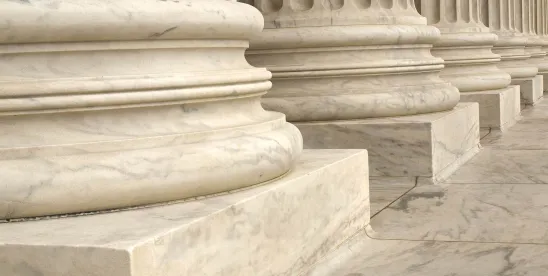Supreme Court just handed down the widely-watched decision in McLaughlin Chriopractric v. McKesson.
Held: The Hobbs Act does not bind district courts in civil enforcement proceedings to an agency’s interpretation of a statute. District courts must independently determine the law’s meaning under ordinary principles of statutory interpretation while affording appropriate respect to the agency’s interpretation.
6-3 vote along ideological grounds.
Essence of the holding is that the Hobbs Act does not actually say district courts cannot review TCPA actions taken by the FCC. Other statutes do. For instance the Clean Air Act states agency actions “shall not be subject to judicial review in any civil or criminal proceeding for enforcement.”
The Hobbs Act’s language is narrower and unclear. It states only a court cannot “determine the validity” of an agency’s action subject to Hobbs. However, it uses that phrase in connection with other words like “enjoin,” “set aside,” and “suspend” that suggest a narrow application of the phrase.
The Supremes ultimately determined the phrase “determine the validity” means only a ban on a district court striking down the agency action altogether– not applying a different rule of law where it feels the agency’s determination might be inapplicable.
Thus the Supreme Court had to apply a “default rule” on court review of the APPLICATION of agency rulings subject to Hobbs Act review.
In the Supreme Court’s view, that default rule is to allow courts to challenge agency action:
In short, the background presumption of judicial review, the text of §703 of the APA, and the tradition and precedents allowing parties in enforcement proceedings to contest an agency’s interpretation combine to establish a clear default rule: In enforcement proceedings, district courts independently determine whether an agency’s interpretation of a statute is correct.
The Court also recognized practical realities in terms of people participating in FCC dockets or challenging rulings via the Hobbs Act:
Requiring all those potentially affected parties to somehow predict the future and bring a pre-enforcement challenge within 60 days or otherwise lose their right to challenge an agency’s interpretation of a statute down the road in an enforcement proceeding would be highly unusual—and would rightly strike many affected parties as grossly unfair.
In my view, however, the Court gives short shrift to the important notion that Congress wanted to protect FCC actions from independent review to assure uniformity across the country. The majority states:
There is no reason to think that Congress wanted to short-circuit that ordinary system of judicial review for the multiplicity of agency rules and orders encompassed by the Hobbs Act.
Umm, sure there is. That’s sort of what the Hobbs Act says. And the Supremes do not evaluate why else district courts are banned from “determin[ing] the validity of agency action in this context.
Regardless, black and white final answer:
The District Court is not bound by the FCC’s interpretation of the TCPA. The District Court should interpret the statute as courts traditionally do under ordinary principles of statutory interpretation, affording appropriate respect to the agency’s interpretation.
Boom.
Everything changes.
Just absolutely HUGE change for TCPAWorld. Many bedrock principles of TCPA jurisprudence are now thrown out.
Ruling is McLaughlin v. McKesson 2025 WL 1716136 (2025)
More analysis shortly.




 />i
/>i

